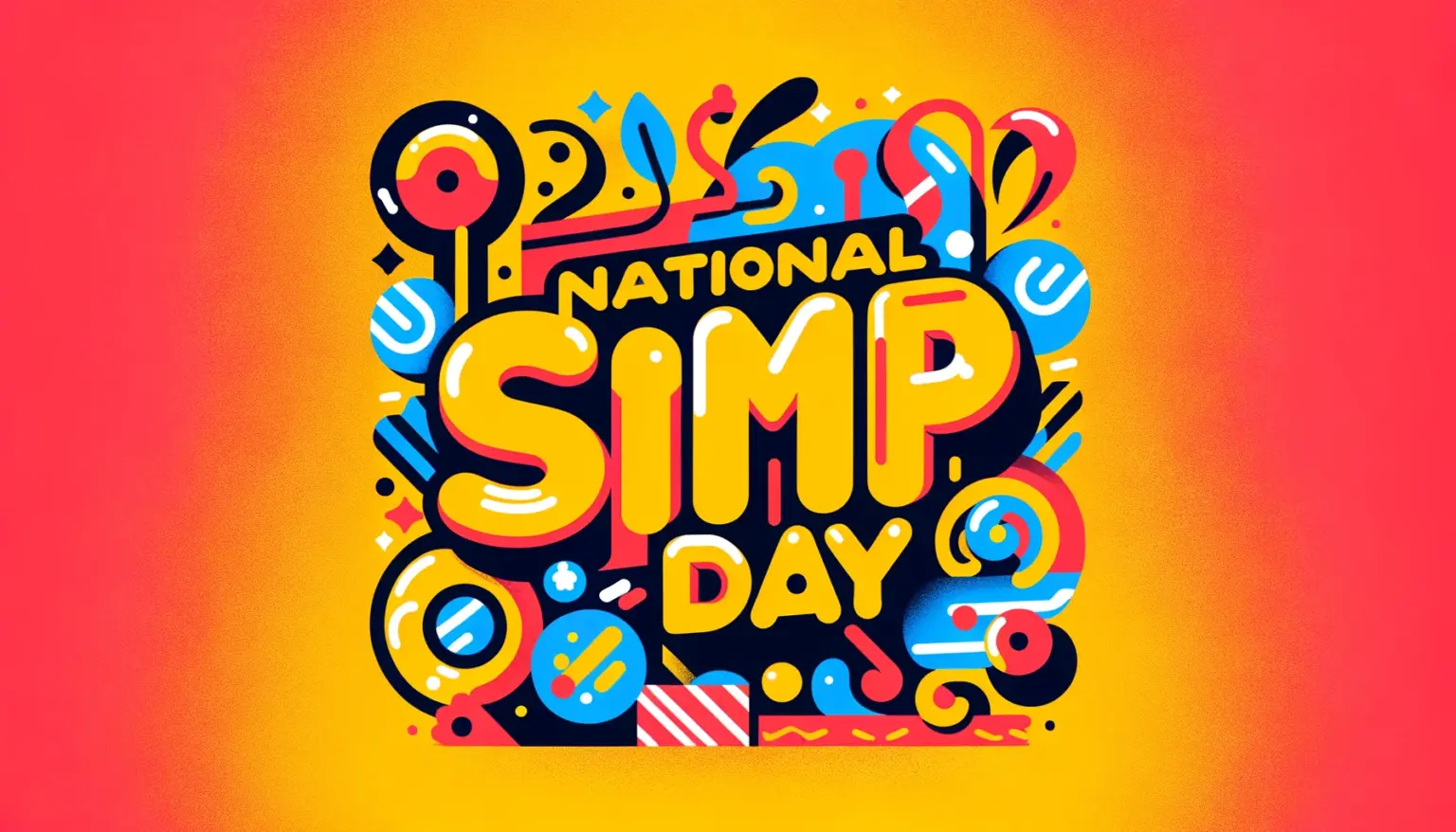The term “simp” originated from the phrase “simpleton,” indicating someone foolish or silly. However, in recent years, the internet has morphed its meaning to describe someone who goes to great lengths to gain the affection of someone they admire, often disregarding their own dignity. Initially considered a derogatory term, “simp” has been embraced by some online communities as a humorous or affectionate label.
National Simp Day, observed informally by internet communities, serves as a day to acknowledge and sometimes satirize the act of “simping.” This day is marked by sharing memes, stories, and posts on social media that either celebrate or poke fun at acts of extreme affection or devotion, often in one-sided romantic contexts. The day’s origin is unclear, but it has gained traction as a form of communal bonding over shared experiences in love and admiration.
The Cultural Impact of Simping
National Simp Day has left a notable imprint on popular culture, influencing everything from social media trends to music. The term has been popularized by internet personalities and influencers who discuss dating and relationship dynamics. Memes related to simping often go viral, reflecting a broader societal engagement with the concept.
Despite its popularity, the concept of simping is not without controversy. Some argue that it perpetuates unhealthy relationship dynamics, such as unrequited love and excessive emotional investment without reciprocation. Critics also suggest that the term can be used to shame individuals, particularly men, for showing affection and undermines genuine expressions of love.
Psychological and Societal Insights on Simping
Being labeled a “simp” can affect individuals’ self-esteem and social standing. Psychologists suggest that such labels can reinforce negative self-perceptions and impact mental health. For some, being called a simp might discourage them from openly expressing affection, for fear of public ridicule or judgment.
The discourse around simping often intersects with discussions on gender roles and expectations. Men, who are predominantly labeled as simps, might feel pressured by traditional notions of masculinity that discourage overt emotional expression. This labeling highlights the complexities of modern relationship dynamics and societal expectations regarding gender and emotional conduct.
Stories from the Heart: Personal Experiences with Simping
On National Simp Day, many share their personal stories either embracing or critiquing their experiences with simping. These narratives range from humorous to heartfelt, offering a window into how diverse the interpretation of simping can be. Some view it as a form of endearing loyalty, while others caution against its potential to lead to one-sided relationships.
Interviews with relationship experts and psychologists on National Simp Day can provide deeper insight into the psychological motivations behind simping and its impact on individuals. Experts often discuss how societal and cultural influences shape our understanding of love and devotion, providing a broader context to the personal stories shared.
Concluding Thoughts on National Simp Day
As we conclude, it’s important to reflect on what National Simp Day reveals about our current cultural and social dynamics. This observance offers a unique lens through which to examine modern relationships, the evolution of language in internet culture, and the ongoing discussion about gender roles and emotional expression.
Looking forward, National Simp Day is likely to evolve along with the social media landscape and changing cultural attitudes. Whether it becomes a more significant cultural phenomenon or remains a niche internet holiday, it continues to foster discussion and debate about the nature of affection, respect, and admiration in our digital age.
10 Interesting Facts About Leave The Office Early Day
- Origins: Leave The Office Early Day was created by employee productivity expert Laura Stack to highlight the importance of workplace efficiency and well-being.
- Date: It is observed annually on June 2nd, unless it falls on a weekend; then it’s the closest working day.
- Purpose: The day encourages companies to let employees leave work early to enjoy personal time, which can lead to increased job satisfaction.
- Productivity Boost: Studies show that shortening the workday can lead to more focused and efficient work.
- Health Benefits: Leaving early can reduce stress, boost mental health, and improve physical well-being.
- Global Reach: While it originated in the United States, many companies worldwide have adopted similar practices, especially in Europe.
- Impact on Morale: Early departure can significantly boost employee morale and create a more positive workplace environment.
- Environmental Impact: Reducing working hours can decrease a company’s carbon footprint by cutting down on energy usage and commuting time.
- Innovation Incentive: Some companies use this day to challenge employees to complete their tasks more efficiently, fostering a spirit of innovation.
- Not Just for Full-Timers: Many part-time and flexible workers also report benefits from modified schedules, which can include earlier finishes.












A thoughtful exploration of National Simp Day. Fascinating insights!
Simp day origins
Good info!
Understanding National Simp Day is intriguing. This article provides a clear explanation of its origins.
National Simp Day is an interesting celebration. This piece captures the origins and ways to embrace the day well. Thanks for sharing!